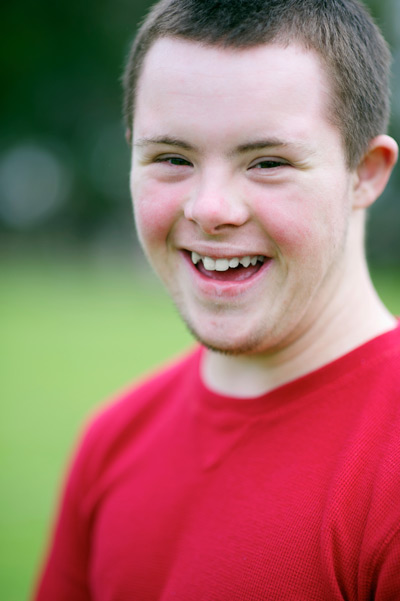Down syndrome
Down syndrome is a genetic disorder with abnormality in number of chromosomes where extra genetic material from chromosome 21 transferred to a newly formed embryo having 47 chromosomes in their cells instead of 46 normal number of chromosomes. Hence it is also known as trisomy 21.
In every cell in the human body there is a nucleus, where genetic material is stored in genes. genes carry the codes responsible for all of our inherited traits and are grouped along rod like structures called chromosome. Typically, the nucleus of each cell contains 23 pairs of chromosomes, half of which are inherited from each parent. Down syndrome occurs when an individual has a full or partial extra copy of chromosome 21.
This additional genetic material alters the course of development and causes the characteristics associated with down syndrome.
The main cause, women who are 35 years or older when they become pregnant are more likely to have a pregnancy altered by down syndrome then women who become pregnant at younger age. However, the majority of babies with down syndrome are born to mothers less than 35 years old because there are many more births among young women.

Types of down syndrome
- Trisomy 21 (Non disjunction):
Down syndrome is usually caused by errors in cell division called “nondisjunction”
Every cell of the affected child have three copies of chromosome 21 instead of the usual two copies affecting about 95% of people.
- Mosaicism or mosaic down syndrome:
Condition where child is born with an extra chromosome in some of the cells not all. It’s a rare form of down syndrome affecting about 2% of people. Video
- Translocation down syndrome
It’s a type of condition where one of every cell has an extra piece of chromosome 21 attacks itself to another chromosome.
However, an additional full or partial copy of chromosome 21 attacks to another chromosome, usually chromosome 14. The presence of the full or partial chromosome 21 causes the characteristics of down syndrome.
Factors of down syndrome
– getting pregnant at older age of women age 35 and older
– previous pregnancy with fetus had down syndrome
Symptoms of down syndrome:
Down syndrome are often characterized as-
– head is flat and small
– tongue is too large
– eyes are slanted upward and white spots on the iris
– nose is small with flat nosal bridge
– hands are broad with short fingers
– Ears are short and odd in appearance
– poor muscle tone
– height and weight is usually below average
– delayed development will have
– learning disability
– slower skills to learn certain things as how to sit, stand, walk, talk
– late speech and language development
– hyperactivity disorder
-hyperthyroidism
– celiac disease and diseased eye condition are seen
– respiratory infection
– constipation
– dental problem
As per Ayurveda
Ayurveda recognises this disorder such as unmada. Unmada is in the manovaha srotas, it leads to fear and anxiety. With the down syndrome disorder, it gets difficult to separate the psychological roles of the brain. (majjavaha strotas) vata provoking function such as dry diet, lack of routine, can further exacerbate this genetic condition.
Ayurveda recognises this illness and classifies it under the Adhyatmika branch of disease. In Ayurvedic Samhita that adhyatmika disorder basically known to affect once intellect (Buddhi), learning capability (dhriti) and memory (smriti).
Adhyatmika diseases includes several congenital and genetic disorders. In particular, the term anuvanshika roga (hereditary disease) is used to refer to genetic alignment.
Down syndrome can be categorised as adhi bala pravratta. This means that they occur before conception. The classical Ayurvedic Samhita, charaka states that the cause of down syndrome is karmaja means born out of effort. The belief in the fact that such diseases occur as manifestation of sanchitta karma that gets accumulated from past lives. In down syndrome the patient will have a weak head (manasmandyam a term used for mental retardation).
Ayurvedic treatment for Down Syndrome: –
Internal medicine
- Medhya Rasayana
- Manas Chikitsa
- Satvavajay chikitsa
- Majjavah strotas chikitsa
- Dosh shaman chikitsa
Panchkarma
- Basti
- Snehan
- Abhyangam
- Lepan
- Shirodhara
Yoga and Pranayama
Meditation

